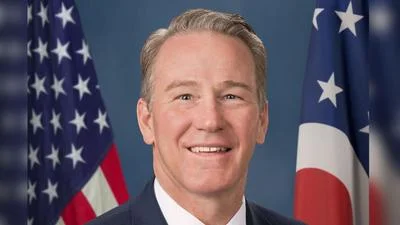Jeff Swartz CEO at Ohio Business Roundtable | LinkedIn
Jeff Swartz CEO at Ohio Business Roundtable | LinkedIn
With the state budget deadline looming, the legislature cast their final votes on Ohio's biennial budget, forwarding it to Governor Mike DeWine. Late on July 3rd, Governor DeWine signed the $190 billion budget into law after issuing vetoes on 44 items. Noteworthy vetoes included tobacco-related provisions, student vaccine refusal allowances at higher education institutions, an expanded sales tax holiday, and other legislative overreaches.
The finalized budget incorporates several key provisions that the Ohio Business Roundtable (OBRT) engaged with. The income tax now has two brackets: those earning under $100,000 taxed at 2.75% and those above at 3.5%. This change was supported by OBRT. However, OBRT opposed changes to the Commercial Activity Tax (CAT), which exempts medium and small businesses completely by 2025 due to concerns about burdening a narrow business segment.
In terms of municipal net profits tax, OBRT led efforts to make permanent a temporary law allowing businesses to designate their physical office location for tax purposes instead of tracking remote work locations. Although this will not apply until after the 2023 tax year, OBRT plans to advocate for retroactive application.
The housing sector saw agreement on Governor DeWine's proposal for a state low-income housing tax credit (LIHTC). The budget also addresses property valuation issues impacting Ohio's LIHTC program and raises the signature threshold for zoning referendums from 8% to 15%.
For K-12 education, the budget continues implementing the Cupp-Patterson Fair School Funding Plan and increases funding for charters while creating universal vouchers for private schools. It also renames the Department of Education as the Department of Education and Workforce (DEW), consolidating responsibilities under a new director.
Higher education saw contentious provisions related to DEI initiatives removed before passage. Funding for the Ohio College Opportunity Grant increased but not to levels proposed by Governor DeWine. New aid programs were introduced for students pursuing in-demand careers at community colleges.
Mental health received significant investments despite not fully meeting initial proposals by Governor DeWine. Funds are allocated towards pediatric behavioral health treatment and research among other areas.
The budget allocates $75 million for new innovation hubs in addition to existing ones in Cincinnati, Columbus, and Cleveland where many OBRT members are involved.
Economic development sites received $667 million out of a proposed $2.4 billion aimed at attracting investments similar to Intel’s in central Ohio.
Lastly, JobsOhio’s franchise agreement with the state liquor enterprise can be extended by another 15 years upon negotiation and approval by the state Controlling Board; its current agreement expires in 2038.






 Alerts Sign-up
Alerts Sign-up